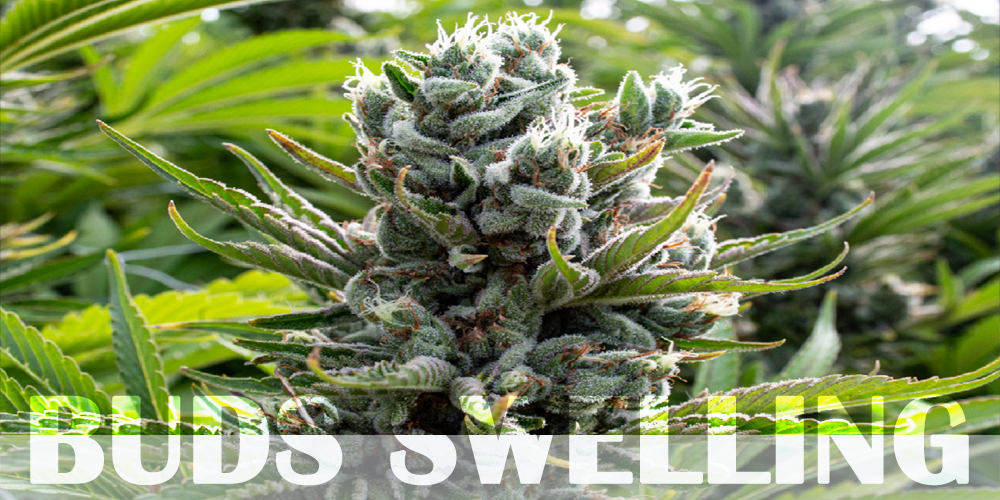
In cannabis cultivation, “bud swelling” refers to the final stage of flower development where the buds become dense, sticky, and heavy with resin. Growers aim to maximize this phase to boost both yield and potency. Here’s a complete breakdown of techniques that help increase bud swelling naturally and efficiently.
During late flowering (weeks 5–8, depending on strain):
Use a “bloom booster” formula:
Higher Phosphorus (P) and Potassium (K) — essential for flower expansion.
Reduce Nitrogen (N) to prevent leafy buds.
Example target ratio:
N-P-K ≈ 1-3-4 or 0-5-6
Bud swelling thrives under stable, slightly drier conditions near harvest.
|
Factor |
Ideal Range |
Why It Matters |
|
Temperature (day/night) |
24–26°C / 18–20°C |
Slight drop encourages bud hardening |
|
Humidity (late flower) |
40–45% RH |
Prevents mold and promotes resin production |
|
CO₂ level |
1000–1200 ppm |
Enhances photosynthesis for larger buds |
|
Airflow |
Steady but not harsh |
Strengthens stems and keeps flowers dry |
Pro Tip: In the final 2 weeks, a mild drop in humidity (“dry finish”) encourages plants to protect themselves by producing more resin.
Bud swelling is directly tied to light penetration and spectrum balance.
Increase light intensity gradually during flowering (up to 800–1000 µmol/m²/s).
Use full-spectrum or red-enhanced lights (660nm) in late flower → promotes dense, heavy buds.
Light defoliation (removing large fan leaves) improves light penetration to lower buds.
If using LEDs: Lower the fixture slowly during the last 3 weeks to boost photon density — but watch for light burn.
Bud size improves when roots get oxygenated dry-back periods between waterings.
Avoid keeping the medium constantly wet.
Let the top layer dry slightly before next watering.
Use enzyme solutions to keep roots healthy.
In the final week, reduce water slightly (not to drought), encouraging resin tightening.
Mild, controlled stress can trigger the plant to produce thicker buds:
Super cropping (bending stems gently during early flower) increases nutrient flow.
Low-Stress Training (LST) improves light distribution.
Stem pinching right before the final swelling phase can redirect hormones to bud sites.
Don’t apply these stresses too late (after week 5–6), or you may stall bud growth.
Look for additives containing:
Carbohydrates (molasses, sugar-based enhancers) → energy for flower bulking.
Silica → strengthens cell walls, supports heavy buds.
Amino acids & fulvic acids → improve nutrient absorption.
Kelp extracts → natural plant growth hormones (cytokinins) that boost bud expansion.
The swelling phase usually happens in the last 2–3 weeks of flowering.
Buds visibly grow heavier and rounder.
Pistils turn from white to orange/brown.
Trichomes turn milky (some amber).
|
Stage |
Action |
|
Mid flower |
Increase P/K; manage humidity 50–55% |
|
Late flower |
Lower humidity 40–45%; boost light intensity |
|
Last 2 weeks |
Reduce watering; maintain CO₂; monitor trichomes |
|
Final week |
Optional 1-week flush to enhance flavor & smooth burn |